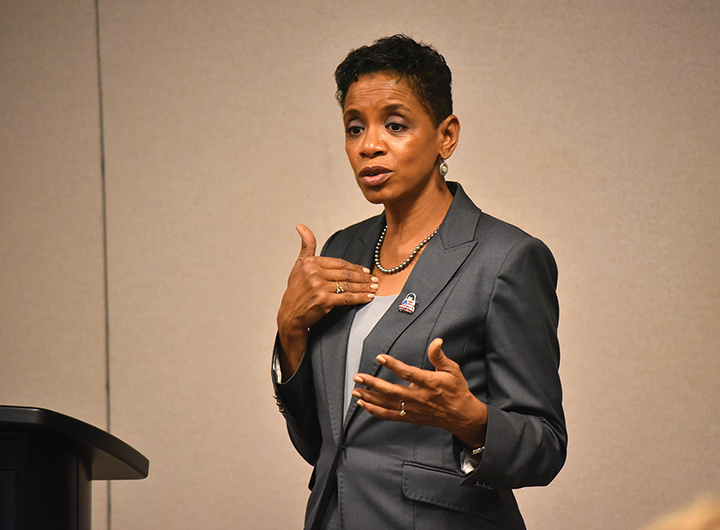A joint poll between The Washington Post and University of Maryland released last week found that Marylanders prefer Rep. Donna Edwards over Rep. Chris Van Hollen by a 4 percent margin in the upcoming Senate primary.
Edwards held 44 percent of the vote among likely voters, according to the poll, while Van Hollen held 40 percent, with a 5.5 percent error margin. Both are running to replace Sen. Barbara Mikulski and are up for vote in the April 26 primary.
University alumna Emily Guskin, a survey analyst for The Washington Post, said the polling team asked respondents how effective each of the candidates would be at getting things done.
“Despite the fact that Chris Van Hollen has this longstanding reputation, both of them scored pretty equally in that question,” Guskin said.
Among registered Democrats polled, 66 percent said Edwards would be effective at getting things done as senator, compared to the 63 percent who said Van Hollen would be effective.
“Van Hollen has won the bulk of endorsements,” said Scott Clement, the polling manager at The Washington Post. Although the candidate is viewed favorably by leaders and donors, this does not align with the views of the general public, he said.
Edwards was the first black female Maryland representative to be elected to the House in 2008. She leads the black vote against Van Hollen three to one, Guskin said.
But Clement said Van Hollen continues to gain endorsements from prominent black leaders in the state, such as Rushern L. Baker III, the Prince George’s County executive, and Isiah Leggett, the Montgomery County executive.
According to the poll, 74 percent of registered Democrats said Edwards would address the needs and interests of African-Americans, compared to 54 percent who said Van Hollen would do the same.

The recent Washington Post-University of Maryland poll shows voters are divided on issues of race.
“That’s got to strike Van Hollen as a real warning sign because he’s clearly won support and endorsements from high-profile African-American leaders,” Clement said.
Michael Hanmer, a professor at this university and research director of the Center for American Politics and Citizenship, said partnering with The Washington Post brings together two organizations with similar interests.
Guskin said partnering with this university is good for The Washington Post because it enables them to work with people “who have experience studying government and politics in Maryland.”
The Washington Post and this university worked together to ensure the questions asked would help researchers understand what the people of Maryland are looking for in their next candidate, Guskin said.
“The Post is mainly interested in news [and] we’re mainly interested in questions that get at larger aspects of our research,” Hanmer said. “What we try to do is blend those two things.”



